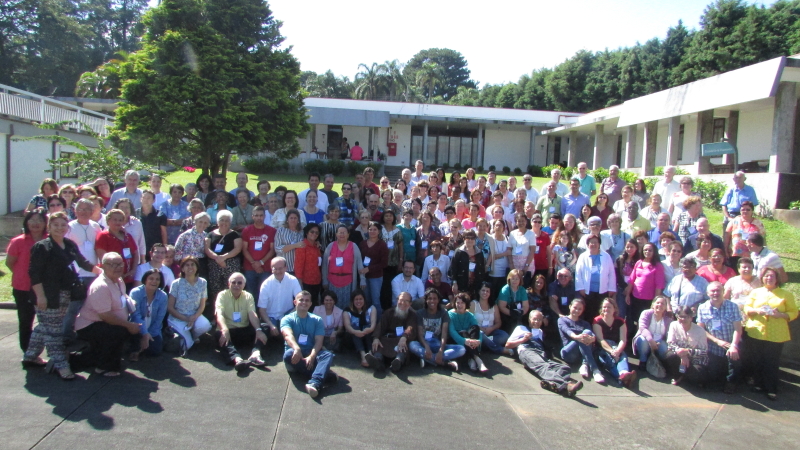
Feb 8, 2016 | Focolare Worldwide
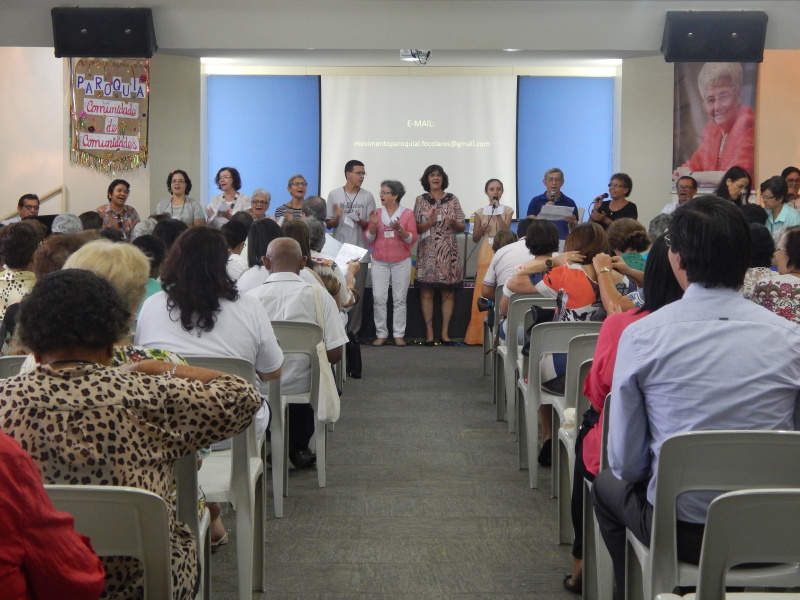 «I had been unjustly accused before the entire parish council. My answer was: silence, tears. After three days there was a phone call from that person, broken with emotion: “Will you forgive me?” and the answer, “I have already forgiven!!! Then a thought came to mind: it was not enough to forgive, but I could do more. So I invited that person to dinner, and a friendship was born, which will never be broken.» This is the story of Berenice, mother of three children, and a catechist for over 20 years, and then a minister of the Word in the five communities that make up the parish of Immaculata Conceção, in one of the peripheral districts of the immense city of Sao Paolo. These were flash backs of the many experiences recounted during the two “Schools of Communion” of the Parish Movement – branch of the Focolare Movement in the local Church – held from 22 to 24 January in the Ginetta Mariapolis, in Vargem Grande Paulista (SP) and from 30 to 31 January in the Mariapolis (Igarassu-Recife). The encounters focused on: Unity, the specific charism of the Focolare, with a particular stress on Mercy in this Holy Year. These were attended by 300 people consisting of the youth, lay adults, religious, seminarians, deacons and priests of 116 parishes in 27 dioceses from 16 Brazilian states. Together they testified to the force of forgiveness and mercy of evangelical love, which make the parish a community of communities, when this force and mercy are lived among the members of the movements.”
«I had been unjustly accused before the entire parish council. My answer was: silence, tears. After three days there was a phone call from that person, broken with emotion: “Will you forgive me?” and the answer, “I have already forgiven!!! Then a thought came to mind: it was not enough to forgive, but I could do more. So I invited that person to dinner, and a friendship was born, which will never be broken.» This is the story of Berenice, mother of three children, and a catechist for over 20 years, and then a minister of the Word in the five communities that make up the parish of Immaculata Conceção, in one of the peripheral districts of the immense city of Sao Paolo. These were flash backs of the many experiences recounted during the two “Schools of Communion” of the Parish Movement – branch of the Focolare Movement in the local Church – held from 22 to 24 January in the Ginetta Mariapolis, in Vargem Grande Paulista (SP) and from 30 to 31 January in the Mariapolis (Igarassu-Recife). The encounters focused on: Unity, the specific charism of the Focolare, with a particular stress on Mercy in this Holy Year. These were attended by 300 people consisting of the youth, lay adults, religious, seminarians, deacons and priests of 116 parishes in 27 dioceses from 16 Brazilian states. Together they testified to the force of forgiveness and mercy of evangelical love, which make the parish a community of communities, when this force and mercy are lived among the members of the movements.”  There were numberless fruits of the Word of God put into practice: in the districts of the outskirts where the laity took charge of finding the facilities to host the growing numbers of the faithful and the youth, who dedicated themselves to the various pastoral activities in the prisons or parish social works where the priority is to listen and pay attention to the person rather than to organization and material aid. Some undertook to initiate small encounters in the parishioners’ homes, bringing the Word of Life to the lives of families that are oftentimes far from the Church as in the case of Maria Hélia from a community of Marechal Deodoro. Bernadete lives in João Pessoa and is a catechist in the parish of Baby Jesus and a member of the archdiocesan team of catechists. She tries to share what she lives with a great openness to dialogue, starting from her family and relatives who belong to the evangelical church and Pentecostal associations. On Christmas Day she managed to involve everyone – including her husband who is not a Church goer – in a sketch of the birth of Jesus. “A spirit of dialogue and unity was established among all of us. We had a real Christmas!” During the conclusive meeting, the commitment declared by all was to become builders of unity within the communities, creating relationships in which, through mutual love, the Risen Christ is present and attracts and transforms everything, irradiating peace and joy. The objective was this: to have an open heart and fulfill “Jesus’ dream” when he prayed to the Father ”that all may be one.”
There were numberless fruits of the Word of God put into practice: in the districts of the outskirts where the laity took charge of finding the facilities to host the growing numbers of the faithful and the youth, who dedicated themselves to the various pastoral activities in the prisons or parish social works where the priority is to listen and pay attention to the person rather than to organization and material aid. Some undertook to initiate small encounters in the parishioners’ homes, bringing the Word of Life to the lives of families that are oftentimes far from the Church as in the case of Maria Hélia from a community of Marechal Deodoro. Bernadete lives in João Pessoa and is a catechist in the parish of Baby Jesus and a member of the archdiocesan team of catechists. She tries to share what she lives with a great openness to dialogue, starting from her family and relatives who belong to the evangelical church and Pentecostal associations. On Christmas Day she managed to involve everyone – including her husband who is not a Church goer – in a sketch of the birth of Jesus. “A spirit of dialogue and unity was established among all of us. We had a real Christmas!” During the conclusive meeting, the commitment declared by all was to become builders of unity within the communities, creating relationships in which, through mutual love, the Risen Christ is present and attracts and transforms everything, irradiating peace and joy. The objective was this: to have an open heart and fulfill “Jesus’ dream” when he prayed to the Father ”that all may be one.”
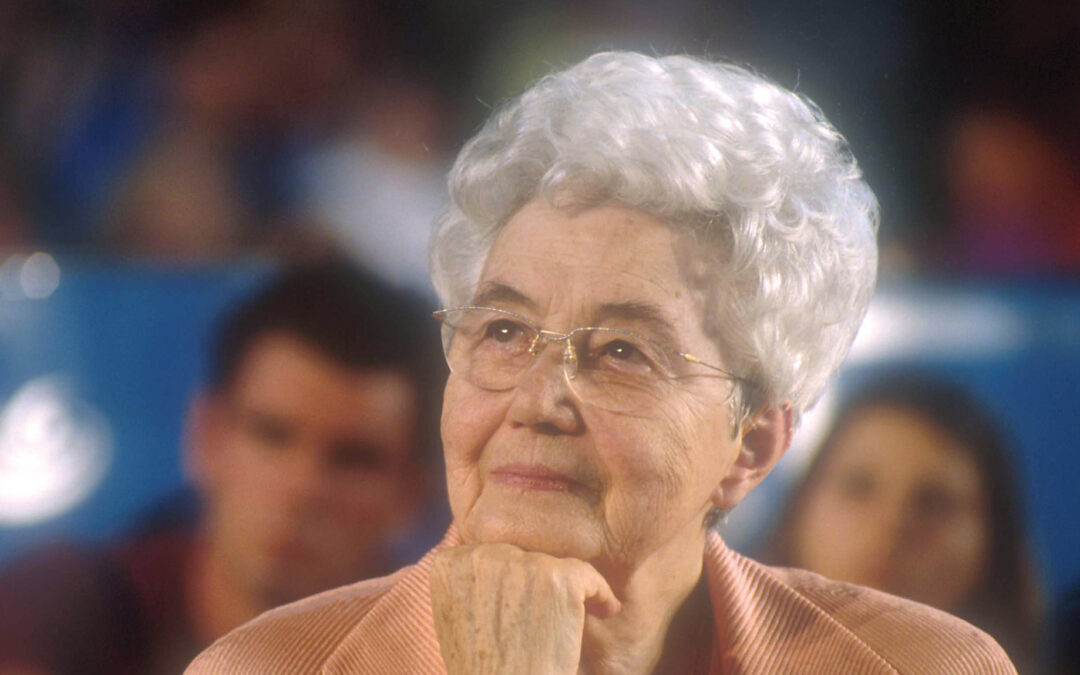
Feb 7, 2016 | Non categorizzato
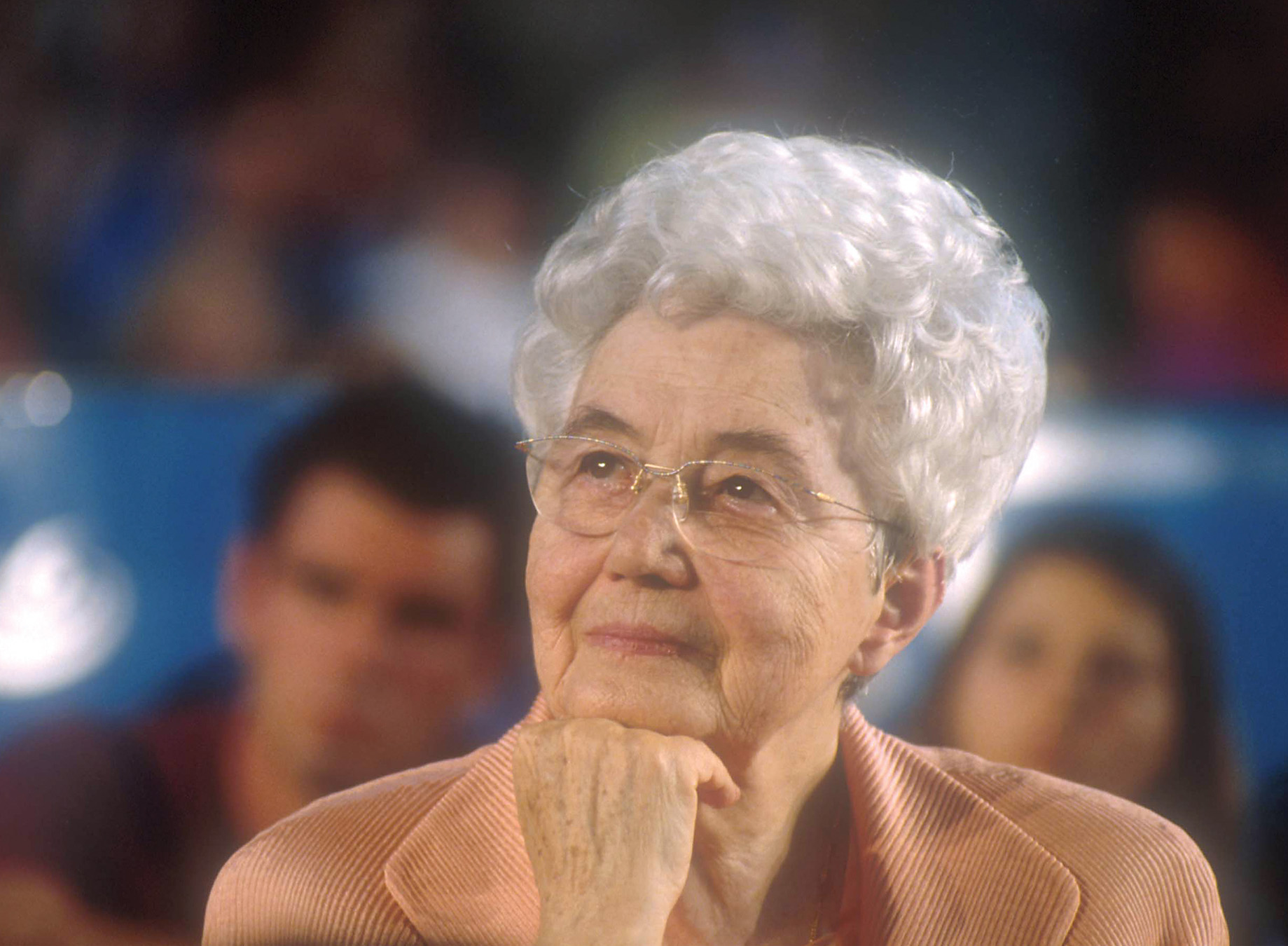 (…)“Let among you who is without sin be the first to throw a stone at her”
(…)“Let among you who is without sin be the first to throw a stone at her” (Jn 8:7). Jesus said this to those who wanted to stone the adulteress. The central idea in Jesus’ commands is always love. This is why he doesn’t want us Christians to condemn anyone. In fact he says, “Do not judge,” and proclaims, “Blessed are the merciful.” Jesus wants mercy. Nevertheless, from what he says one could conclude that there is someone who could throw the first stone: whoever is without sin.
This is certainly not one of us, we are all sinners. But there is a person who is without sin. And we know who she is: the Mother of God. Could Mary, then, “throw a stone” at someone who erred? Did she ever do such a thing when she was on earth?
We know our Mother. We know what Scripture says about her, what Tradition has handed down to us about her, what the People of God have always thought about her. Mary loves everyone. She is merciful She is the advocate of the most unfortunate. It is to her that countless Christians have turned, when they have had the impression that God’s justice was upon them. Mary does not throw stones. Quite the contrary, no one except Jesus spreads love the way she does. Why? Because she is a mother, and mothers only know how to love. It is typical of a mother to love her children as herself, because there’s something of herself in them. … We too can find something of ourselves in others. For we must see Jesus in ourselves and in every neighbour.
What shall we do? With each neighbor, at home, at work, or on the street, with the people we talk; with those we speak to over the phone, or for whom we carry out our daily work – with every person we meet these days, we must think: “I must act as if I were his or her mother,” and act accordingly. Mothers are always serving, Mothers always find excuses for their children. Mothers are always full of hope.
“As if I were his or her mother”, this is thought which must be foremost in our minds these days. This must be our resolution, if we want to be sure not to throw stones: and to be Mary’s presence here on earth for everyone we meet. Chiara Lubich Rocca di Papa, 3rd March 1983 Source: Chiara Lubich Centre
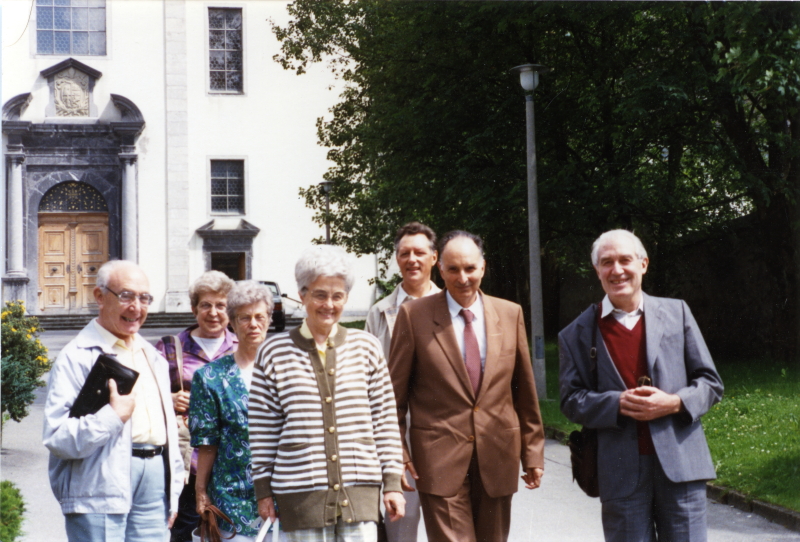
Feb 6, 2016 | Non categorizzato
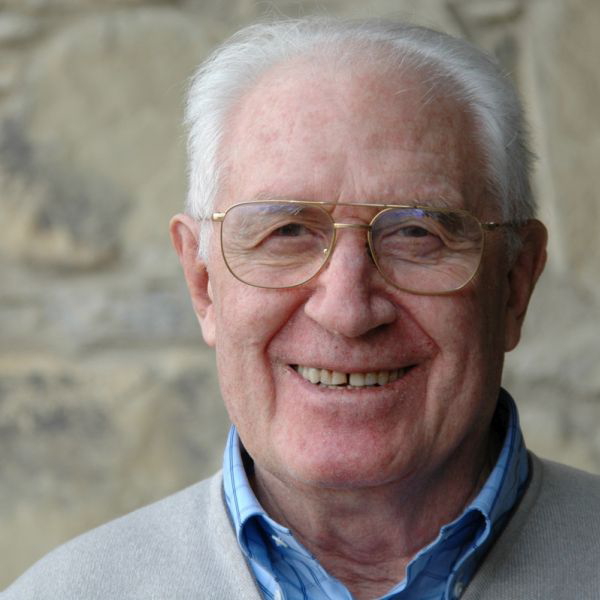 Card. Giuseppe Betori, Archbishop of Florence traced an important phase of his story, and described him as «A promoter of proactive communion between the various groups and associations,» who «interpreted the hope of Cardinal Benelli and Chiara Lubich» for the creation of the Giorgio La Pira International Students’ Centre in Florence at the turn of the 1970s. In fact, Giorgio Martelli, a native of Pistoia, Tuscany, gave a decisive contribution to the birth of this joint project between the Florentine Archdiocese and the Focolare Movement, which up to today continues its commitment to the «youth from all the nations worldwide, especially the developing countries, fostering fraternal acceptance and promoting dialogue between people of all cultures and creeds.» The story of the La Pira Centre is one of the important stories that has crossed the life of Turnea (the name Chiara Lubich gave him and that described his: Turris Eburnea, Tower of Ivory, taken from the Marian litanies). Born into a working-class family, Turnea was brought up with a simple faith, moral rectitude and thirst for justice. As a young man he was active in the Catholic Action where he received a more solid Christian education. During the war, he and his father were caught twice in a round-up which condemned him to forced labour, from which he managed to escape. After the war he started working in the labour union as a clerk in the contracts and litigations office, and at the same time, took up his studies again and graduated as an industrial surveyor. During the Catholic Action period he met other youth active in Christian movements, among whom were Bruno Venturini, and Vitaliano Bulletti who also became focolarini. He himself commented on that period: «Before me were two aspects of Christian life that were alternatively a more personal aspect of the quest for a relationship with God, and a more social one concerning the need for fraternity among men, and the justice and struggles to reach them. But these were two separate spheres!!» His first meeting with the focolare came about in January 1950 when he first met Graziella De Luca, who had gone to his city to speak to some people about the experience of the newborn Focolare Movement. In the following months he went several times to Rome where he met, besides Chiara, the first focolare men and women. After an internal struggle that lasted a few months, he decided to become one of them, and after leaving his fiancée and family – amid great misunderstandings – he moved to Rome, and joined the first men’s focolare house. Subsequently, he lived in various focolare houses in Italy and Holland .
Card. Giuseppe Betori, Archbishop of Florence traced an important phase of his story, and described him as «A promoter of proactive communion between the various groups and associations,» who «interpreted the hope of Cardinal Benelli and Chiara Lubich» for the creation of the Giorgio La Pira International Students’ Centre in Florence at the turn of the 1970s. In fact, Giorgio Martelli, a native of Pistoia, Tuscany, gave a decisive contribution to the birth of this joint project between the Florentine Archdiocese and the Focolare Movement, which up to today continues its commitment to the «youth from all the nations worldwide, especially the developing countries, fostering fraternal acceptance and promoting dialogue between people of all cultures and creeds.» The story of the La Pira Centre is one of the important stories that has crossed the life of Turnea (the name Chiara Lubich gave him and that described his: Turris Eburnea, Tower of Ivory, taken from the Marian litanies). Born into a working-class family, Turnea was brought up with a simple faith, moral rectitude and thirst for justice. As a young man he was active in the Catholic Action where he received a more solid Christian education. During the war, he and his father were caught twice in a round-up which condemned him to forced labour, from which he managed to escape. After the war he started working in the labour union as a clerk in the contracts and litigations office, and at the same time, took up his studies again and graduated as an industrial surveyor. During the Catholic Action period he met other youth active in Christian movements, among whom were Bruno Venturini, and Vitaliano Bulletti who also became focolarini. He himself commented on that period: «Before me were two aspects of Christian life that were alternatively a more personal aspect of the quest for a relationship with God, and a more social one concerning the need for fraternity among men, and the justice and struggles to reach them. But these were two separate spheres!!» His first meeting with the focolare came about in January 1950 when he first met Graziella De Luca, who had gone to his city to speak to some people about the experience of the newborn Focolare Movement. In the following months he went several times to Rome where he met, besides Chiara, the first focolare men and women. After an internal struggle that lasted a few months, he decided to become one of them, and after leaving his fiancée and family – amid great misunderstandings – he moved to Rome, and joined the first men’s focolare house. Subsequently, he lived in various focolare houses in Italy and Holland .  In 1968 Turnea he was appointed by Chiara as the first person to take charge of the newborn branch of the Volunteers of God. At their conventions Turnea encouraged moments of debate on issues and queries regarding the concretisation of the spirituality of unity in daily life. He often repeated Chiara’s affirmations: The Volunteers in our time have to take after the first Christians. For many years he dedicated himself to that Focolare aspect called harmony and environment and which concerned the construction works, the towns, the Mariapolis Centres, art and social works. It was a role he covered with passion, love and devotion also in the numerous trips and visits to various countries. Turnea endowed his efforts, tenacity and love also in many other fields: at the start of the Youth for a United World Movement, and in supporting the Santa Chiara Audiovisual Centre and the international Gen Rosso band. Free from specific assignments from 2008, he continued to give his contribution with advice and ideas. As a priest, he stood by many focolarini, especially those in suffering, and for whom he regularly celebrated the Holy Mass. In 2012 he was struck by a disease that caused a motor disability, which he bore, however, with his proverbial grit and his love for Jesus Forsaken and Abandoned. Regarding the last years, his long-time friend, Bruno Venturini recounted: «He would gather all his strength to try to be active, and was still willing to help. At times, after a difficult day he didn’t have the strength to get up and I would find him at the computer, checking his mail. At the same time he was always committed to accepting from God with serenity, this state of weakness and inactivity. He was never resigned and received all those who came to see him with joy. He spoke with great presence of mind and often with great effort, about all the most various topics one or the other was involved in. He never forgot to express his deep thoughts which showed his interior state, his full adhesion to God’s will: his heavenly thoughts.» On 26 January Turnea concluded his earthly journey. Focolare President Maria Voce wrote: We have «another giant» among the first focolarini. Maria Chiara de Lorenzo
In 1968 Turnea he was appointed by Chiara as the first person to take charge of the newborn branch of the Volunteers of God. At their conventions Turnea encouraged moments of debate on issues and queries regarding the concretisation of the spirituality of unity in daily life. He often repeated Chiara’s affirmations: The Volunteers in our time have to take after the first Christians. For many years he dedicated himself to that Focolare aspect called harmony and environment and which concerned the construction works, the towns, the Mariapolis Centres, art and social works. It was a role he covered with passion, love and devotion also in the numerous trips and visits to various countries. Turnea endowed his efforts, tenacity and love also in many other fields: at the start of the Youth for a United World Movement, and in supporting the Santa Chiara Audiovisual Centre and the international Gen Rosso band. Free from specific assignments from 2008, he continued to give his contribution with advice and ideas. As a priest, he stood by many focolarini, especially those in suffering, and for whom he regularly celebrated the Holy Mass. In 2012 he was struck by a disease that caused a motor disability, which he bore, however, with his proverbial grit and his love for Jesus Forsaken and Abandoned. Regarding the last years, his long-time friend, Bruno Venturini recounted: «He would gather all his strength to try to be active, and was still willing to help. At times, after a difficult day he didn’t have the strength to get up and I would find him at the computer, checking his mail. At the same time he was always committed to accepting from God with serenity, this state of weakness and inactivity. He was never resigned and received all those who came to see him with joy. He spoke with great presence of mind and often with great effort, about all the most various topics one or the other was involved in. He never forgot to express his deep thoughts which showed his interior state, his full adhesion to God’s will: his heavenly thoughts.» On 26 January Turnea concluded his earthly journey. Focolare President Maria Voce wrote: We have «another giant» among the first focolarini. Maria Chiara de Lorenzo
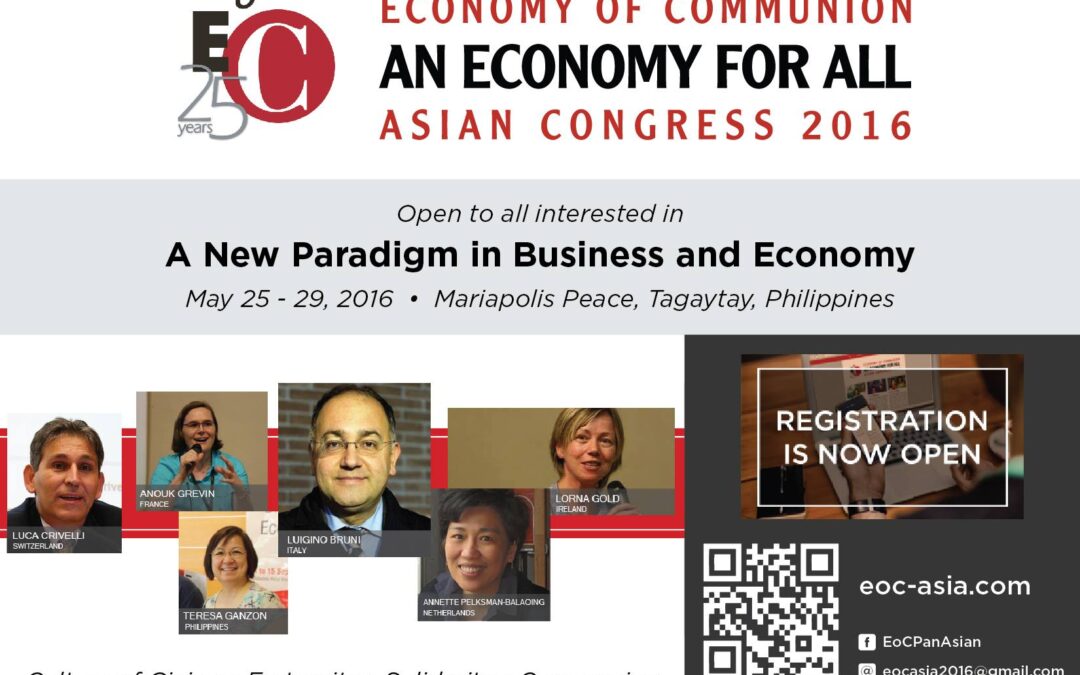
Feb 5, 2016 | Non categorizzato
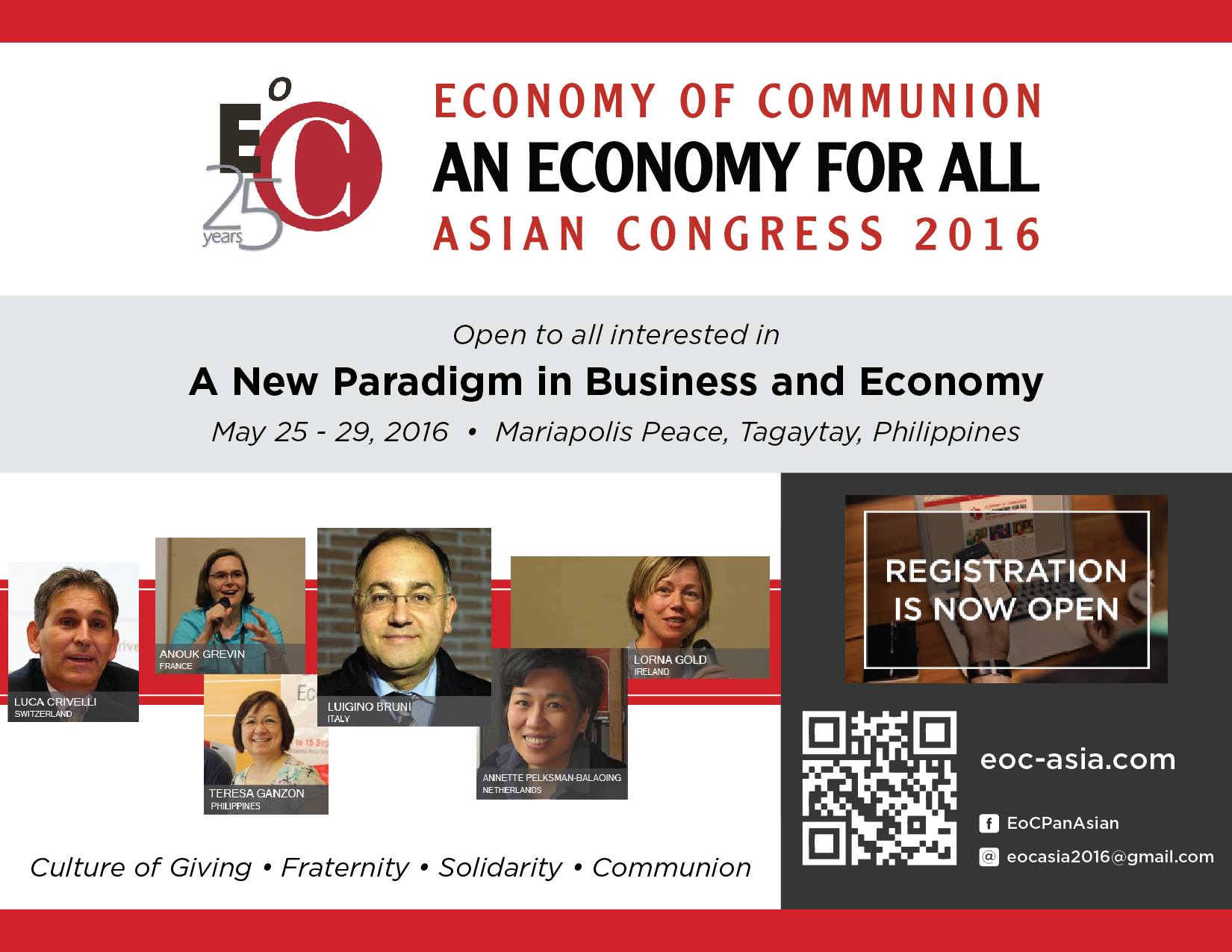 Invited are all interested advocates of a different way of viewing economy and doing business that is characterized by communion, fraternity and solidarity, especially with the weakest sectors of society. The congress hopes to bring together entrepreneurs, professors, young people and members of civil society with a passion for changing the business world, understanding in depth the challenges facing Asian nations despite the unprecedented economic growth of the past years, due to a continued adherence to the capitalist model and concept of economics – and what the economy of communion can offer to make the changes more meaningful and inclusive. Economists expected to be give their inputs in the congress include members of the international commission – Luigino Bruni (Italy), Anouk Grevin (France), Lorna Gold (Ireland), Teresa Ganzon (Philippines) and Luca Crivelli (Switzerland). Invited as a guest lecturer also is Dr. Annette Pelksman-Balaoing of the University of Rotterdam, Netherlands, to give a perspective on Globalization and how it has affected Asian nations in the past decade. It is expected to draw participants from different nations in Asia, as well as Australia. Live streaming playlist 25-29 May The EOC Pan Asian Congress will also have a celebration of EOC’s 25th anniversary on May 28th, even of the actual anniversary date on the 29th. Go to the EoC Asia web-site Register: More info: eocasia2016@gmail.com
Invited are all interested advocates of a different way of viewing economy and doing business that is characterized by communion, fraternity and solidarity, especially with the weakest sectors of society. The congress hopes to bring together entrepreneurs, professors, young people and members of civil society with a passion for changing the business world, understanding in depth the challenges facing Asian nations despite the unprecedented economic growth of the past years, due to a continued adherence to the capitalist model and concept of economics – and what the economy of communion can offer to make the changes more meaningful and inclusive. Economists expected to be give their inputs in the congress include members of the international commission – Luigino Bruni (Italy), Anouk Grevin (France), Lorna Gold (Ireland), Teresa Ganzon (Philippines) and Luca Crivelli (Switzerland). Invited as a guest lecturer also is Dr. Annette Pelksman-Balaoing of the University of Rotterdam, Netherlands, to give a perspective on Globalization and how it has affected Asian nations in the past decade. It is expected to draw participants from different nations in Asia, as well as Australia. Live streaming playlist 25-29 May The EOC Pan Asian Congress will also have a celebration of EOC’s 25th anniversary on May 28th, even of the actual anniversary date on the 29th. Go to the EoC Asia web-site Register: More info: eocasia2016@gmail.com
The YouTube links are: For Day 1, 25 May to Day 5, 29 May: Link to the playlist of the whole meeting: https://www.youtube.com/playlist?list=PLseXirhCvXpHfSeiIcXBqicR4Hfl4dxuB EoC 25° Anniversary Event – EoC Asian Congress 2016 (9:00PM – 10:00 PM Philippines time) https://youtu.be/pQpqh4REvWc
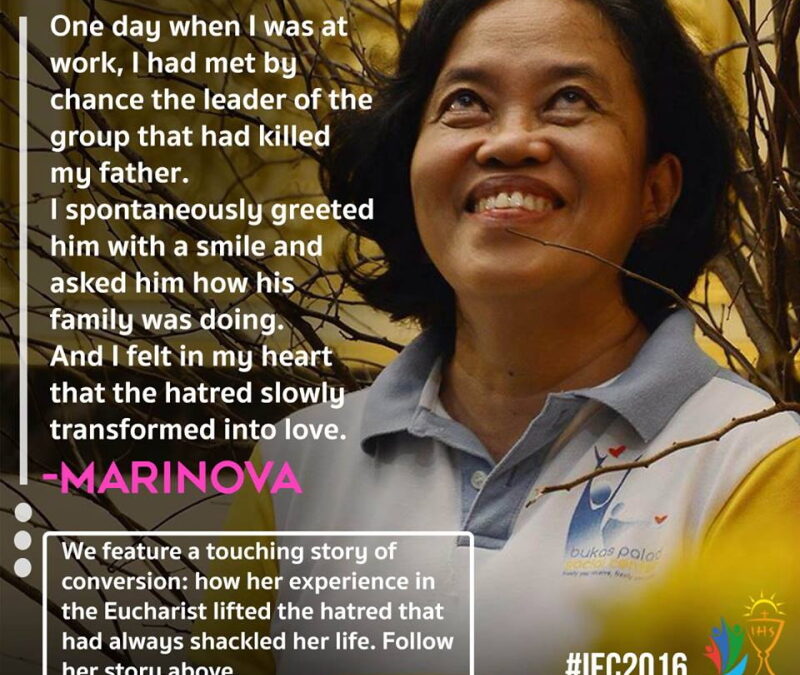
Feb 5, 2016 | Focolare Worldwide
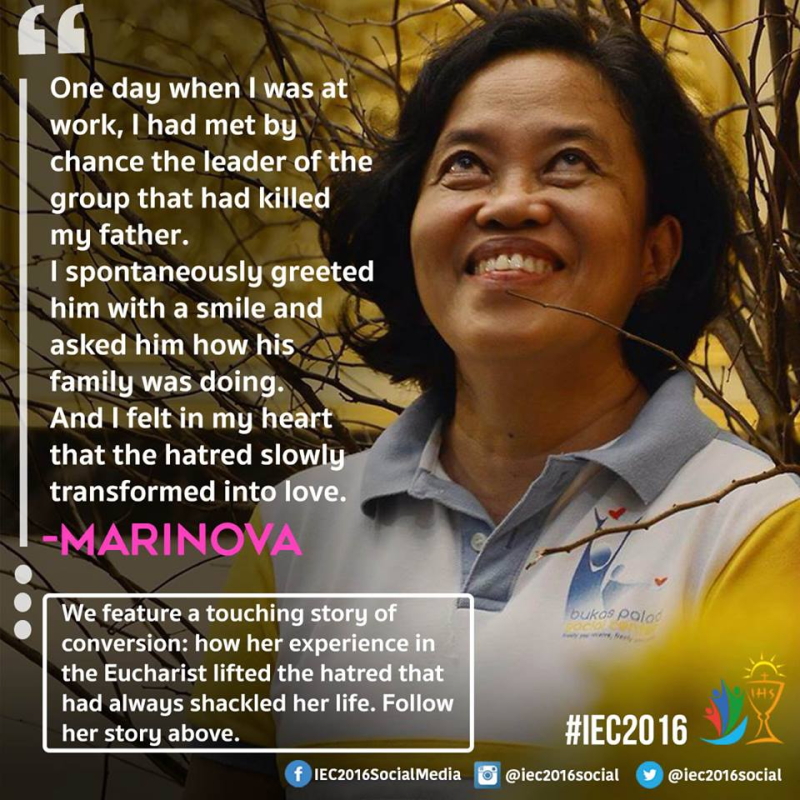 The 51st International Eucharistic Congress has been held in Cebu City, Philippines. (January 24th – 31st, 2016). The official social media coverage of the IEC 2016 scouted for meaningful life stories related to the Eucharist and published them in its facebook page (IEC2016SocialMedia). The experience of Marinova, a focolarina based in Cebu, touched them. “I was 11 years old when a big suffering came to my family. My father was killed by a group of persons who were very influential and no justice was served because we were poor. Our grandparents reminded us that true justice is found only in God! Thanks to their help I was able to finish college and got a job immediately. I became the bread winner of the family as I worked hard to help my mother. I incurred a lot of debts with loan sharks in order to bring ahead my family. Because of all these problems, an intense hatred developed in my heart for all those people who killed my father. They caused all the miseries in our life. Then I took up studies in Law because I wanted justice for the death of my father. But God had another plan for me. One of my classmates, a youth member of the Focolare Movement, invited me to a meeting of this ecclesial movement which has as its goal the fulfillment of Jesus’ prayer to the Father, ‘That they may all be one’, and strives to bring unity to the human family by translating the Gospel into life. A new adventure began in my life. I too started putting into practice the words of Jesus. He said: ‘Love and I will manifest myself to you. ‘Whatever you do to the least of your brethren you do it unto me.’ I became addicted to this new drug: LOVE… I found the essence and true meaning of my life and for the first time I felt that Jesus in the Eucharist was the source of it all. One day I asked Jesus to teach me how to live concretely his word ‘Love your enemy’, since I felt that hatred for those who killed my father still enveloped me. And indeed the following day, at work, I met by chance the leader of the group. Spontaneously I greeted him with a smile and asked him how everyone in his family was. I saw that this greeting was a great surprise for him. I was even more surprised by what I was did. Little by little I felt that the hatred within me was melting and was slowly being transformed into love! But that was only the first step! Love is creative! I felt that each one in the group should feel that we had forgiven him. Together with one of my brothers, we visited them trying to re-build our relationship and to make them understand that God loves them! It came to a point that one of them asked for forgiveness for what he had done and in turn asked for prayers for his family and his health. I knew clearly that this experience of forgiveness and healing was the transforming power of Jesus in the Eucharist.”.
The 51st International Eucharistic Congress has been held in Cebu City, Philippines. (January 24th – 31st, 2016). The official social media coverage of the IEC 2016 scouted for meaningful life stories related to the Eucharist and published them in its facebook page (IEC2016SocialMedia). The experience of Marinova, a focolarina based in Cebu, touched them. “I was 11 years old when a big suffering came to my family. My father was killed by a group of persons who were very influential and no justice was served because we were poor. Our grandparents reminded us that true justice is found only in God! Thanks to their help I was able to finish college and got a job immediately. I became the bread winner of the family as I worked hard to help my mother. I incurred a lot of debts with loan sharks in order to bring ahead my family. Because of all these problems, an intense hatred developed in my heart for all those people who killed my father. They caused all the miseries in our life. Then I took up studies in Law because I wanted justice for the death of my father. But God had another plan for me. One of my classmates, a youth member of the Focolare Movement, invited me to a meeting of this ecclesial movement which has as its goal the fulfillment of Jesus’ prayer to the Father, ‘That they may all be one’, and strives to bring unity to the human family by translating the Gospel into life. A new adventure began in my life. I too started putting into practice the words of Jesus. He said: ‘Love and I will manifest myself to you. ‘Whatever you do to the least of your brethren you do it unto me.’ I became addicted to this new drug: LOVE… I found the essence and true meaning of my life and for the first time I felt that Jesus in the Eucharist was the source of it all. One day I asked Jesus to teach me how to live concretely his word ‘Love your enemy’, since I felt that hatred for those who killed my father still enveloped me. And indeed the following day, at work, I met by chance the leader of the group. Spontaneously I greeted him with a smile and asked him how everyone in his family was. I saw that this greeting was a great surprise for him. I was even more surprised by what I was did. Little by little I felt that the hatred within me was melting and was slowly being transformed into love! But that was only the first step! Love is creative! I felt that each one in the group should feel that we had forgiven him. Together with one of my brothers, we visited them trying to re-build our relationship and to make them understand that God loves them! It came to a point that one of them asked for forgiveness for what he had done and in turn asked for prayers for his family and his health. I knew clearly that this experience of forgiveness and healing was the transforming power of Jesus in the Eucharist.”.
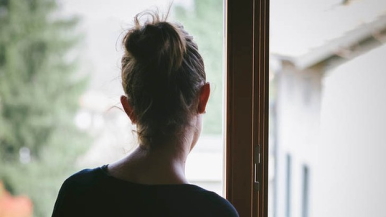
Feb 4, 2016 | Focolare Worldwide
 The sign from heaven While I was waiting to have a check-up at the doctor’s, I happened to hear a lady pregnant with her fourth child, say to the secretary that she could not keep the child, given her economic conditions. “God will keep him in mind”, she concluded. Since I could not remain indifferent to this news, I immediately recounted this to my close friends, and together we decided to collect some funds among us. I then went to the doctor’s secretary to ask her to give the money to that lady without revealing its source. In the meantime we entrusted all this to God. Time passed and we did not know the outcome; somebody noted that the lady’s tummy continued to grow (we live in a small town where we all know one another) In the end, a beautiful baby was born. After a year I received the lady’s thanks, since she had guessed where that money had come from: “The day before the abortion, I had asked God to enlighten me on the right thing to do. Late in the evening, the doctor’s secretary came by with your envelope. For me it was a sign from heaven.” (R. – Italy) The iron Corina needed an iron. My first thought was to entrust her need to God’s providence. Later, a lady invited me to a parish breakfast. Since I had so many things to do, I felt like saying no. But I accepted just to make her happy. I found myself having coffee with some elderly ladies who were pleased to have a young person in their midst. It was there that I saw an acquaintance: she had bought an iron that was too heavy for her, and she asked me if I knew of anyone who needed it. I was happy and immediately thought of my prayer. (I.- Switzerland) While waiting for the train… I had been betrayed by the people I loved and had thus left the family to live on my own. I was severely depressed, and had tried to kill myself a few times. The last time was in a small train station. While I was waiting for the first train to throw myself on the rails, a nun joined me at the tracks and convinced me to desist. Then she took care of me, and introduced me to a rehab community that welcomed me with open arms. At first, I refused the love they showed me due to the hatred I harboured inside. Even if I did not want to hear about God, one of them convinced me to read the Bible. Little by little the hardness of my heart began to melt and faith started to grow inside me. Some years have passed and I have learned to forgive, love my neighbor and be patient… Now I have reconnected also with my relatives, I have a job, a home, and feel serene. Nothing happens by chance. Thanks to God who has made me experience his immense love! (C. – Italy)
The sign from heaven While I was waiting to have a check-up at the doctor’s, I happened to hear a lady pregnant with her fourth child, say to the secretary that she could not keep the child, given her economic conditions. “God will keep him in mind”, she concluded. Since I could not remain indifferent to this news, I immediately recounted this to my close friends, and together we decided to collect some funds among us. I then went to the doctor’s secretary to ask her to give the money to that lady without revealing its source. In the meantime we entrusted all this to God. Time passed and we did not know the outcome; somebody noted that the lady’s tummy continued to grow (we live in a small town where we all know one another) In the end, a beautiful baby was born. After a year I received the lady’s thanks, since she had guessed where that money had come from: “The day before the abortion, I had asked God to enlighten me on the right thing to do. Late in the evening, the doctor’s secretary came by with your envelope. For me it was a sign from heaven.” (R. – Italy) The iron Corina needed an iron. My first thought was to entrust her need to God’s providence. Later, a lady invited me to a parish breakfast. Since I had so many things to do, I felt like saying no. But I accepted just to make her happy. I found myself having coffee with some elderly ladies who were pleased to have a young person in their midst. It was there that I saw an acquaintance: she had bought an iron that was too heavy for her, and she asked me if I knew of anyone who needed it. I was happy and immediately thought of my prayer. (I.- Switzerland) While waiting for the train… I had been betrayed by the people I loved and had thus left the family to live on my own. I was severely depressed, and had tried to kill myself a few times. The last time was in a small train station. While I was waiting for the first train to throw myself on the rails, a nun joined me at the tracks and convinced me to desist. Then she took care of me, and introduced me to a rehab community that welcomed me with open arms. At first, I refused the love they showed me due to the hatred I harboured inside. Even if I did not want to hear about God, one of them convinced me to read the Bible. Little by little the hardness of my heart began to melt and faith started to grow inside me. Some years have passed and I have learned to forgive, love my neighbor and be patient… Now I have reconnected also with my relatives, I have a job, a home, and feel serene. Nothing happens by chance. Thanks to God who has made me experience his immense love! (C. – Italy)
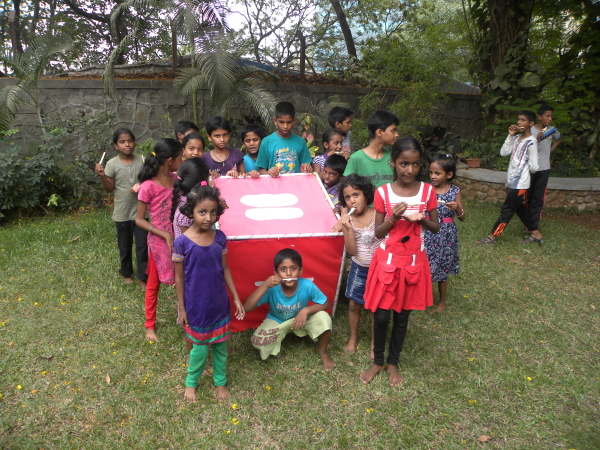
Feb 3, 2016 | Focolare Worldwide
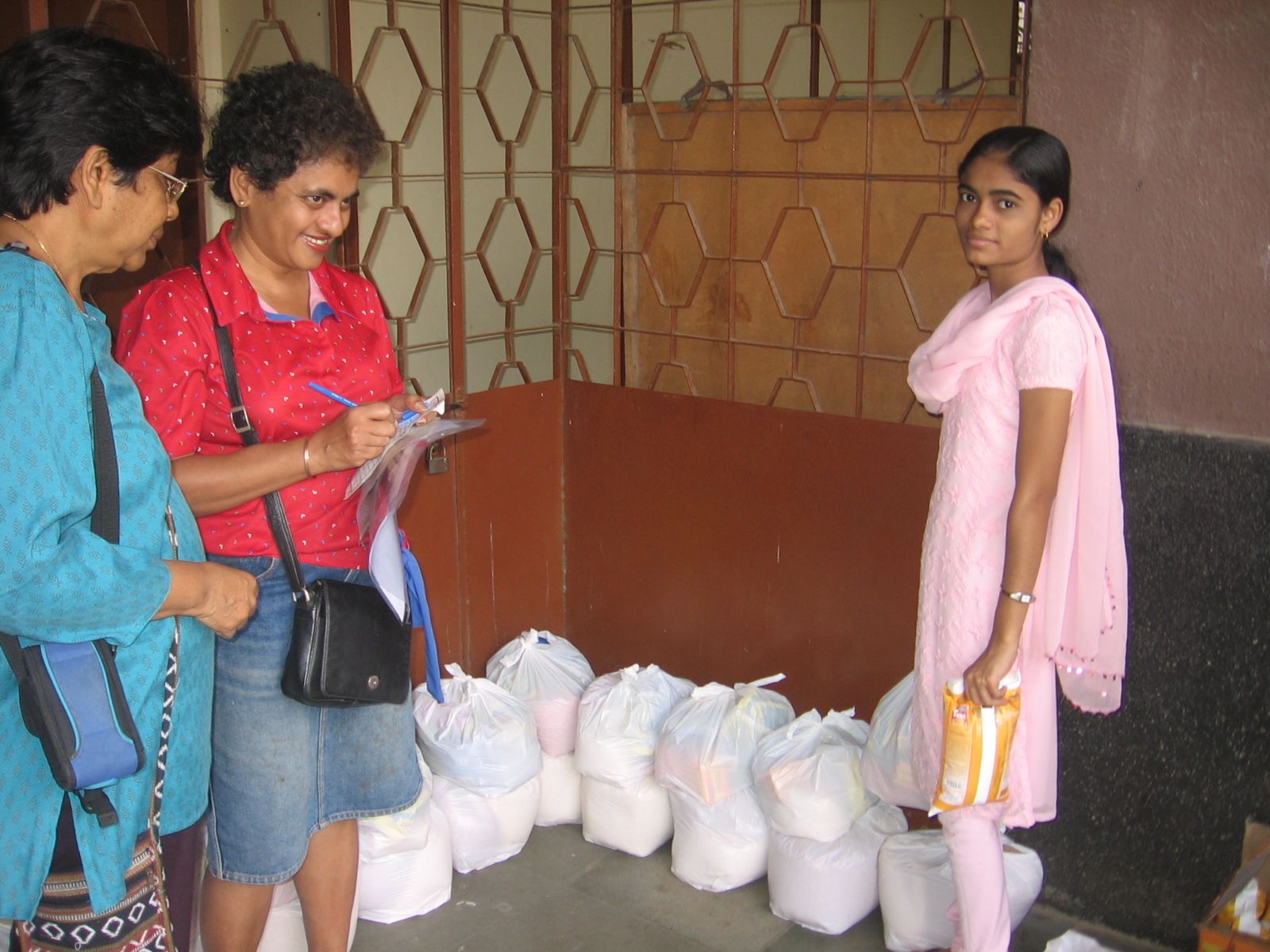 “One can either walk away from the problems in another’s life or embrace the challenge head on. For a Movement that has chosen the suffering face of Jesus on the Cross, it is only natural that the Focolare in Mumbai chose to welcome the challenges among its communities with love and dedication,” writes Annabel, a young journalist, member of the Focolare in Mumbai. Santacruz Project and Udisha have come to symbolize the Movement’s strong commitment to social justice, universal fraternity and, above all, love for Jesus in the other in this city. Santacruz Project started in 1992 as a direct response to the needs of families struggling with poverty, addictions and lack of jobs. It provides basic food rations and household supplies so that children from these homes can continue their education. “We realized that many of these little girls attending our activities didn’t even have enough to eat at home. In order to love them concretely, we had to empower their families to give them enough food and keep them in school. We struggled initially to fund this project, pulling together our resources and gathering contributions from the larger Focolare family here in India. I’m happy that we’ve been able to sustain this project for over 25 years now,” says Joan Viegas, one of the earliest volunteers from Mumbai involved in the project. “Somewhere along the way we realized that spiritual nourishment was equally necessary for these families to face society’s challenges. We organized Word of Life meetings for the girls’ mothers who desperately needed a space to express themselves, share their troubles and find spiritual strength. One of us, Josephine Passanha who is passed away, started conducting meetings in Konkani for these women who could not speak English, and also organized useful workshops on life skills such as budgeting and family planning to empower them.“
“One can either walk away from the problems in another’s life or embrace the challenge head on. For a Movement that has chosen the suffering face of Jesus on the Cross, it is only natural that the Focolare in Mumbai chose to welcome the challenges among its communities with love and dedication,” writes Annabel, a young journalist, member of the Focolare in Mumbai. Santacruz Project and Udisha have come to symbolize the Movement’s strong commitment to social justice, universal fraternity and, above all, love for Jesus in the other in this city. Santacruz Project started in 1992 as a direct response to the needs of families struggling with poverty, addictions and lack of jobs. It provides basic food rations and household supplies so that children from these homes can continue their education. “We realized that many of these little girls attending our activities didn’t even have enough to eat at home. In order to love them concretely, we had to empower their families to give them enough food and keep them in school. We struggled initially to fund this project, pulling together our resources and gathering contributions from the larger Focolare family here in India. I’m happy that we’ve been able to sustain this project for over 25 years now,” says Joan Viegas, one of the earliest volunteers from Mumbai involved in the project. “Somewhere along the way we realized that spiritual nourishment was equally necessary for these families to face society’s challenges. We organized Word of Life meetings for the girls’ mothers who desperately needed a space to express themselves, share their troubles and find spiritual strength. One of us, Josephine Passanha who is passed away, started conducting meetings in Konkani for these women who could not speak English, and also organized useful workshops on life skills such as budgeting and family planning to empower them.“ 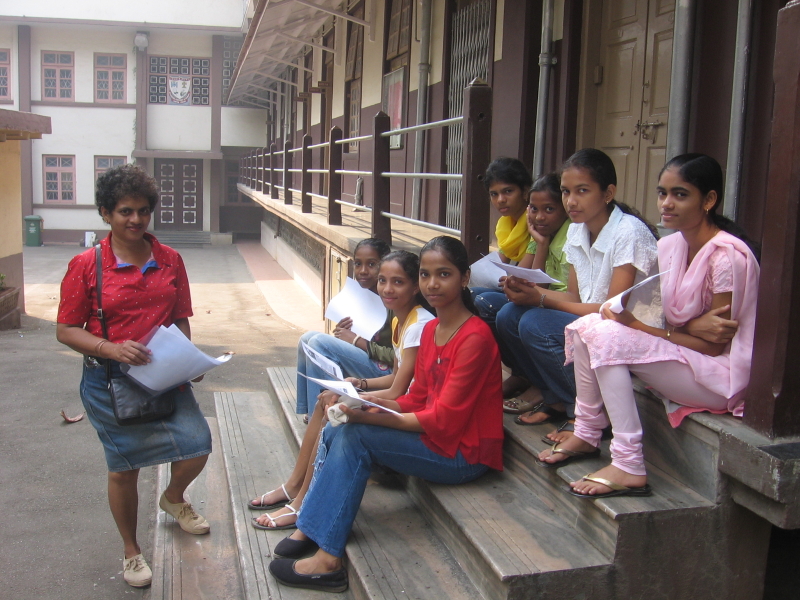 During her first visit to India in 2001, Chiara encouraged the members of the Focolare in Mumbai to reach out even further to people at the periphery of society. This gave a strong thrust to the already on-going Udisha Project in Goregaon which focusses on the holistic development of children from underprivileged backgrounds. Literally translating as a ‘ray of light’ in Sanskrit, Udisha is lighting up the lives of over 120 children today through its various activities such as academic tuition classes, occupational therapy, anger management sessions, medical camps and programs promoting value education and parenting skills. Counselling has becoming one of Udisha’s key specialisations, helping many children and their parents solve many day-to-day challenges, sometimes even saving lives from suicidal tendencies. Self-Help Groups empower mothers of these children to manage their household income and supplement it by starting small enterprises such as crochet bag making, catering and beautician services.
During her first visit to India in 2001, Chiara encouraged the members of the Focolare in Mumbai to reach out even further to people at the periphery of society. This gave a strong thrust to the already on-going Udisha Project in Goregaon which focusses on the holistic development of children from underprivileged backgrounds. Literally translating as a ‘ray of light’ in Sanskrit, Udisha is lighting up the lives of over 120 children today through its various activities such as academic tuition classes, occupational therapy, anger management sessions, medical camps and programs promoting value education and parenting skills. Counselling has becoming one of Udisha’s key specialisations, helping many children and their parents solve many day-to-day challenges, sometimes even saving lives from suicidal tendencies. Self-Help Groups empower mothers of these children to manage their household income and supplement it by starting small enterprises such as crochet bag making, catering and beautician services.  “Udisha has evolved into a full-fledged organisation with the help of the larger Focolare community all over Mumbai, as well as with the Support at a Distance help we receive from the New Families Movement of the Focolare”, says Brian D’Silva, who has been spearheading the project since the beginning. “We try to reach out to more families every day, always bearing in mind that it is Jesus who we serve in each individual. It gives me great satisfaction to see our children from Udisha who are well-educated, employed and positively contributing to society today.”
“Udisha has evolved into a full-fledged organisation with the help of the larger Focolare community all over Mumbai, as well as with the Support at a Distance help we receive from the New Families Movement of the Focolare”, says Brian D’Silva, who has been spearheading the project since the beginning. “We try to reach out to more families every day, always bearing in mind that it is Jesus who we serve in each individual. It gives me great satisfaction to see our children from Udisha who are well-educated, employed and positively contributing to society today.”
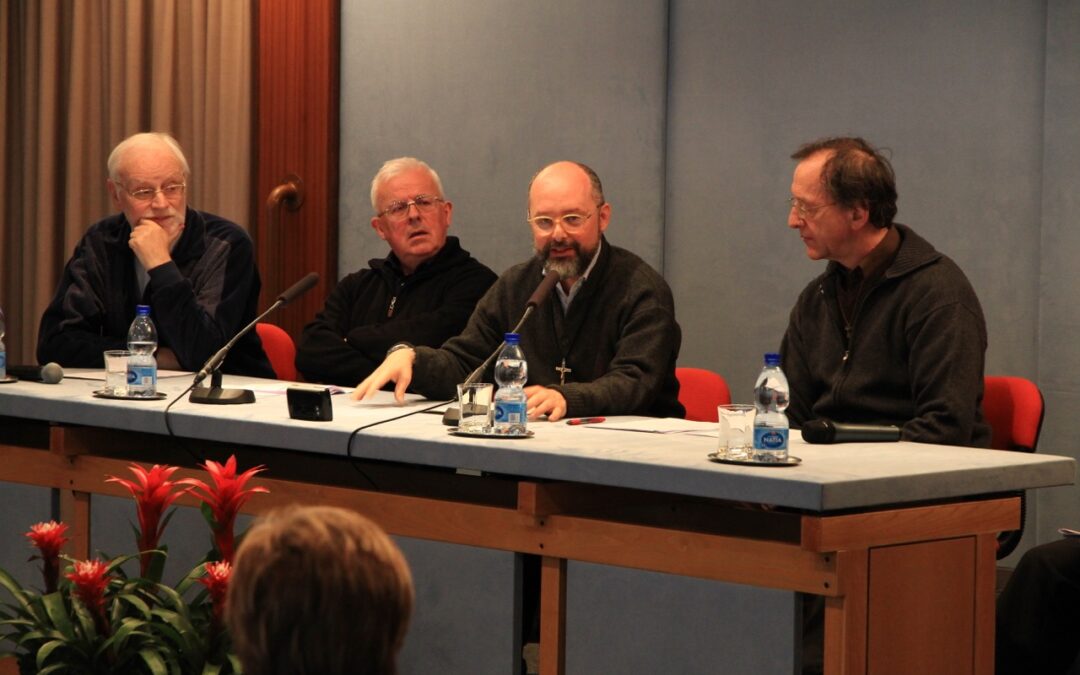
Feb 2, 2016 | Non categorizzato
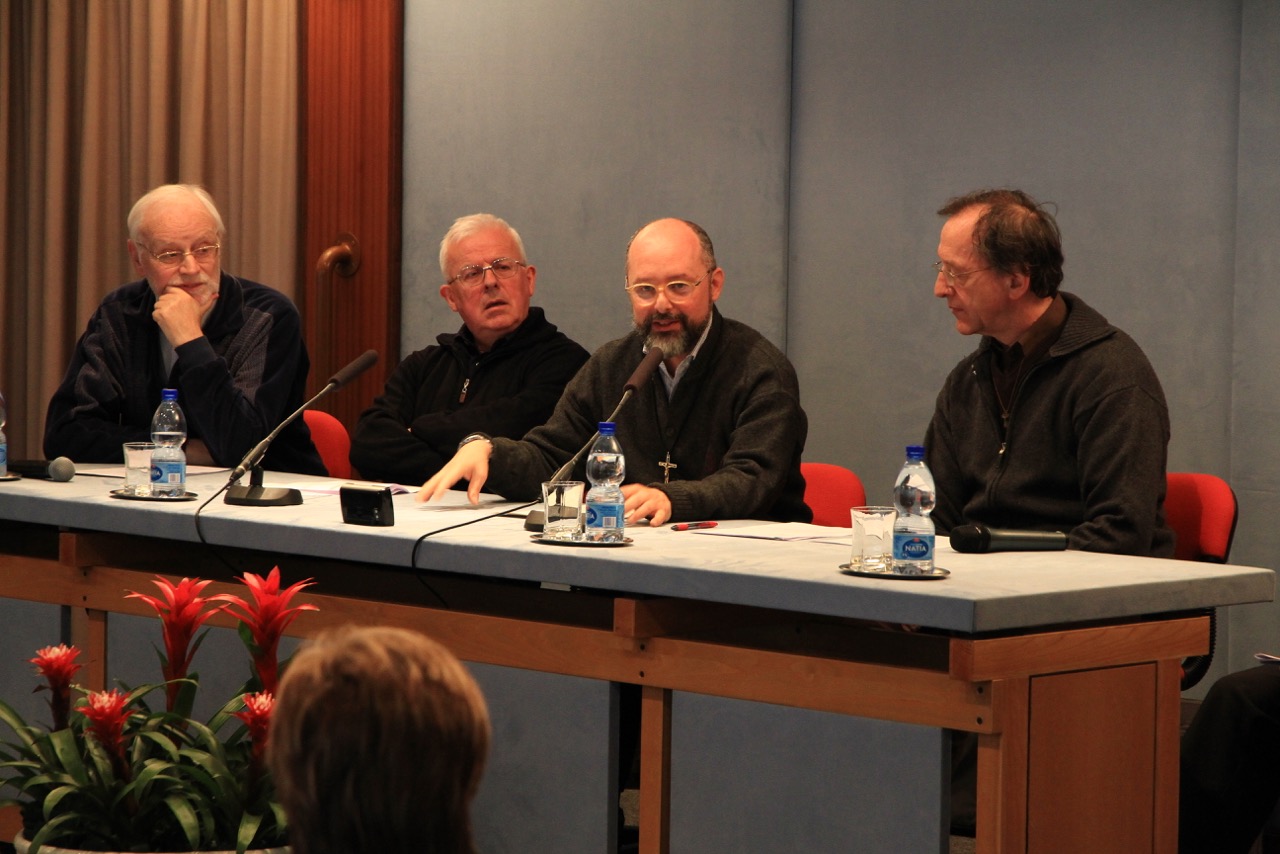 Fr Salvo, could you draw a conclusion to this regard? «It was the endowment of a very strong grace that touched also the ample strata of the Church, besides of course, affecting all the consecrated members. Pope Francis imbued this year with particularly inspiring thoughts and events also through the Congregation for the Institutes of Consecrated Life and the Apostolic Life Societies (CIVCSVA). Of course it is still too early to take stock of everything, since I am convinced that it was an in-depth event and the fruits will be fully seen as time passes.» What role did the Religious members of the Focolare play? «The particular sensitivity to unity, typical of Chiara Lubich’s spirituality, offers to the members of the Movement, a sort of know-how that inspires them to give priority to relationships and transform them into communion. The religious men and women belonging to the Focolare committed themselves to the initiatives of their communities and dioceses, or to national activities and those of the universal Church, giving their imprint of communion, a spirit the Church hoped would develop more and more as the “home and school of communion.” In one of the European countries, it was precisely the religious and consecrated people of the Movement who proposed the project of an encounter for consecrated youth, to the Conference of Major Superiors. The heads highly appreciated the contents and methods, so as to make it their own initiative. Around 250 young religious participated, with really important impressions and results.» And with regard to the initiatives set up by the Holy Father and the Congregation of Consecrated Life? Great importance was given to Pope Francis’s invitation to show the joy of consecrated life and to prophetically act in the “existential outskirts,” as expressed in his Apostolic Letter to all the consecrated men and women: “I expect you to «wake the world up», because the typical feature of consecrated life is prophecy.” He thus underlined a specific attribute of Religious Life characterised by that of being harbingers of charismas, that is, of gifts for the good of the entire Church. TCIVCSVA then developed the thoughts of Pope Francis with three letters: one dedicated to Joy which must distinguish the consecrated religious (Rejoice); another dealing with their capacity to be prophets for the world (Keep Watch); and the third, a contemplative dimension of their life (Contemplate). These three documents are a reference point for the future of Consecrated Life in the Church. As to the events, we certainly must note the meeting in Rome of the young religious last September. It was a convention of great impact, with 5,000 participants from all over the world, and lasted 4 days. It is not something we see often. It also impressed me because of the significance of the ecumenical Dialogue of religious men and women held from 22 to 25 January 2015. This was an absolute “first” in the Vatican, which Pope Francis wanted so much, and a sign of the progress of the journey among Christians of various denominations. Fr. José M. Hernández, a Claretian, said that each one is called to “be a bridge and not a trench” among Christians. I think this is a good augur which well expresses the rest of the journey we still have to undertake.»
Fr Salvo, could you draw a conclusion to this regard? «It was the endowment of a very strong grace that touched also the ample strata of the Church, besides of course, affecting all the consecrated members. Pope Francis imbued this year with particularly inspiring thoughts and events also through the Congregation for the Institutes of Consecrated Life and the Apostolic Life Societies (CIVCSVA). Of course it is still too early to take stock of everything, since I am convinced that it was an in-depth event and the fruits will be fully seen as time passes.» What role did the Religious members of the Focolare play? «The particular sensitivity to unity, typical of Chiara Lubich’s spirituality, offers to the members of the Movement, a sort of know-how that inspires them to give priority to relationships and transform them into communion. The religious men and women belonging to the Focolare committed themselves to the initiatives of their communities and dioceses, or to national activities and those of the universal Church, giving their imprint of communion, a spirit the Church hoped would develop more and more as the “home and school of communion.” In one of the European countries, it was precisely the religious and consecrated people of the Movement who proposed the project of an encounter for consecrated youth, to the Conference of Major Superiors. The heads highly appreciated the contents and methods, so as to make it their own initiative. Around 250 young religious participated, with really important impressions and results.» And with regard to the initiatives set up by the Holy Father and the Congregation of Consecrated Life? Great importance was given to Pope Francis’s invitation to show the joy of consecrated life and to prophetically act in the “existential outskirts,” as expressed in his Apostolic Letter to all the consecrated men and women: “I expect you to «wake the world up», because the typical feature of consecrated life is prophecy.” He thus underlined a specific attribute of Religious Life characterised by that of being harbingers of charismas, that is, of gifts for the good of the entire Church. TCIVCSVA then developed the thoughts of Pope Francis with three letters: one dedicated to Joy which must distinguish the consecrated religious (Rejoice); another dealing with their capacity to be prophets for the world (Keep Watch); and the third, a contemplative dimension of their life (Contemplate). These three documents are a reference point for the future of Consecrated Life in the Church. As to the events, we certainly must note the meeting in Rome of the young religious last September. It was a convention of great impact, with 5,000 participants from all over the world, and lasted 4 days. It is not something we see often. It also impressed me because of the significance of the ecumenical Dialogue of religious men and women held from 22 to 25 January 2015. This was an absolute “first” in the Vatican, which Pope Francis wanted so much, and a sign of the progress of the journey among Christians of various denominations. Fr. José M. Hernández, a Claretian, said that each one is called to “be a bridge and not a trench” among Christians. I think this is a good augur which well expresses the rest of the journey we still have to undertake.»
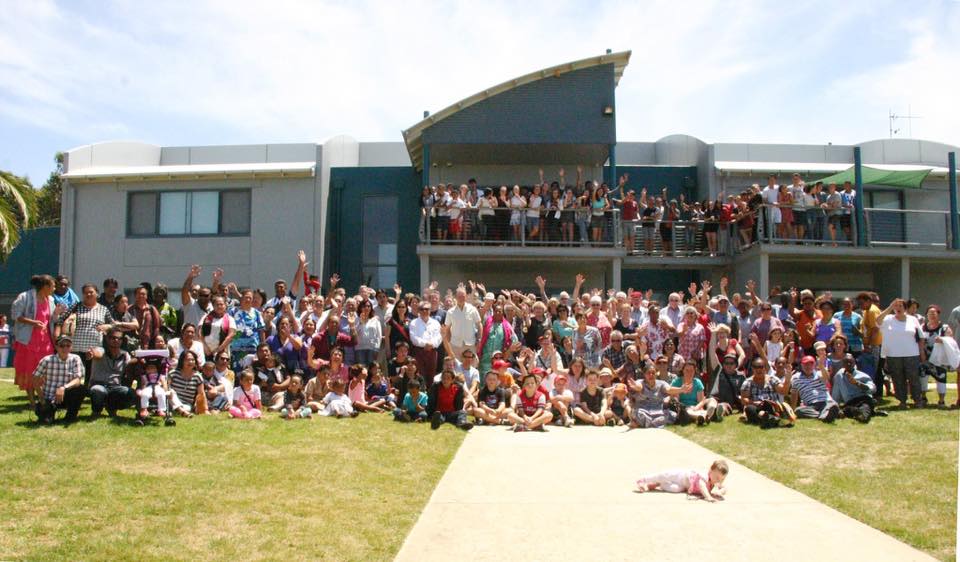
Feb 1, 2016 | Focolare Worldwide, Senza categoria
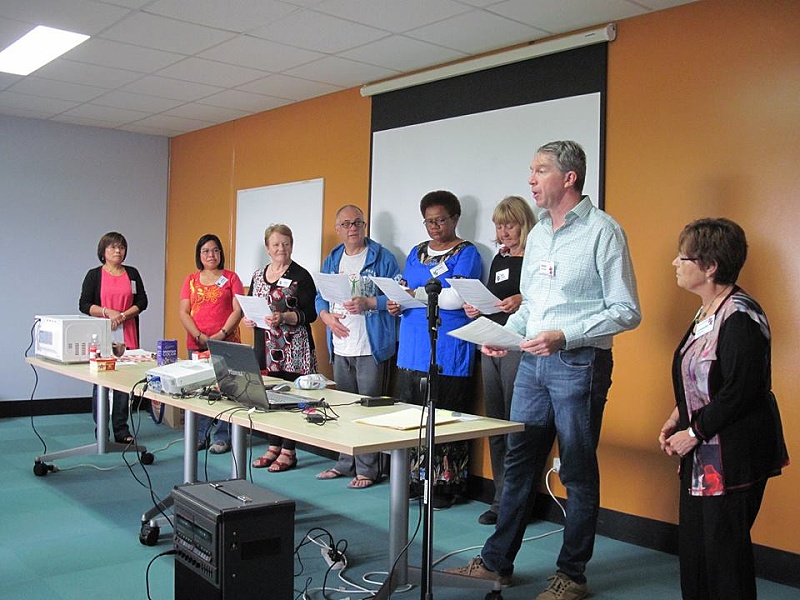 Five hundred and forty people from different countries – half of them families and young people – were together for four days. There were two refugees from Burundi and a group from Syria, 169 people from the Pacific Islands (New Caledonia, Wallis & Futuna, Fiji and Kiribati). The Mariapolis was held on January 13-17 on Phillip Island, 150 km from Melbourne (Australia). The title chosen for the event was “Building Unity Together”. The organisers write: “This central point of the spirituality of unity was examined in a formal presentation and immediately embraced and lived out each day of the Mariapolis by all the participants, some of them from very different cultural backgrounds.”
Five hundred and forty people from different countries – half of them families and young people – were together for four days. There were two refugees from Burundi and a group from Syria, 169 people from the Pacific Islands (New Caledonia, Wallis & Futuna, Fiji and Kiribati). The Mariapolis was held on January 13-17 on Phillip Island, 150 km from Melbourne (Australia). The title chosen for the event was “Building Unity Together”. The organisers write: “This central point of the spirituality of unity was examined in a formal presentation and immediately embraced and lived out each day of the Mariapolis by all the participants, some of them from very different cultural backgrounds.” 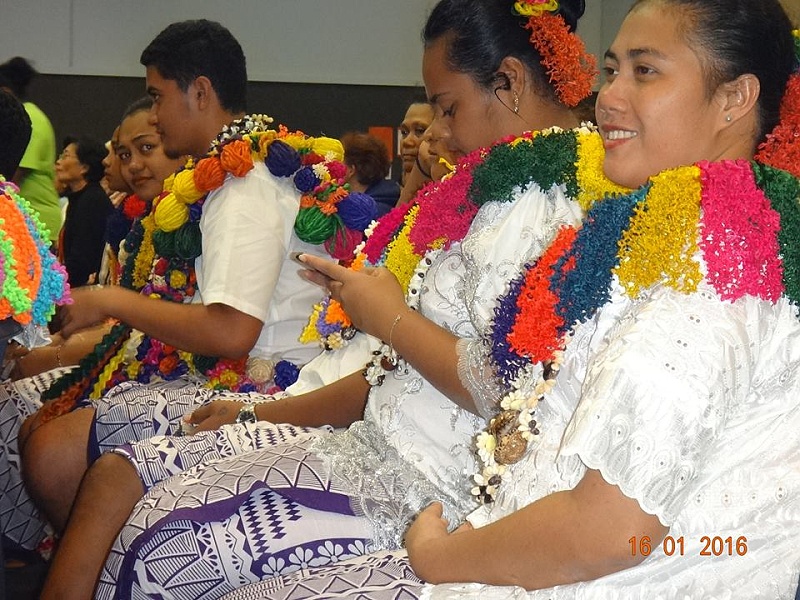 The people who came from the Pacific Islands made a great contribution beginning from their common witness of raising the money to be there: “like the representative from Kiribati who took leave of his work as a seaman in order to be able to attend. There were many beautiful testimonies of Gospel living and how they managed to overcome the many economic problems and raise the money to pay for the flight and lodging. A communion of goods was set in motion a bit like that of the early Christians, and it made everyone experience God’s personal love for them because of the Providence that arrived in many different ways. When they arrived at the Mariapolis they spoke of finding the same family that was no different from the one they had left behind.”
The people who came from the Pacific Islands made a great contribution beginning from their common witness of raising the money to be there: “like the representative from Kiribati who took leave of his work as a seaman in order to be able to attend. There were many beautiful testimonies of Gospel living and how they managed to overcome the many economic problems and raise the money to pay for the flight and lodging. A communion of goods was set in motion a bit like that of the early Christians, and it made everyone experience God’s personal love for them because of the Providence that arrived in many different ways. When they arrived at the Mariapolis they spoke of finding the same family that was no different from the one they had left behind.”  Every day ended in an atmosphere of celebration and gratitude for each ethnic group that was represented, like a small slice of a united world. Everyone felt that “The unity of peoples was not a utopia.” The people from the islands stayed on for an extra week at the Mariapolis Centre in Melbourne, where they attended a course on family life. “Each day is like a mutual love competition, and we look forward to the next activity with much joy and enthusiasm. There’s a saying, “From little things big things grow”, and we’re sure that great things will grow from Jesus in our midst through our mutual love.” See on Facebook: Phillip Island Mariapolis 2016
Every day ended in an atmosphere of celebration and gratitude for each ethnic group that was represented, like a small slice of a united world. Everyone felt that “The unity of peoples was not a utopia.” The people from the islands stayed on for an extra week at the Mariapolis Centre in Melbourne, where they attended a course on family life. “Each day is like a mutual love competition, and we look forward to the next activity with much joy and enthusiasm. There’s a saying, “From little things big things grow”, and we’re sure that great things will grow from Jesus in our midst through our mutual love.” See on Facebook: Phillip Island Mariapolis 2016
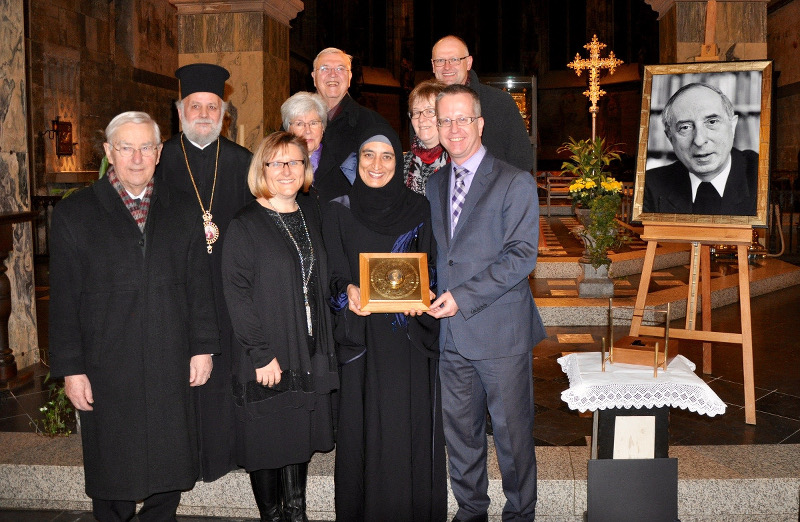
Jan 31, 2016 | Focolare Worldwide
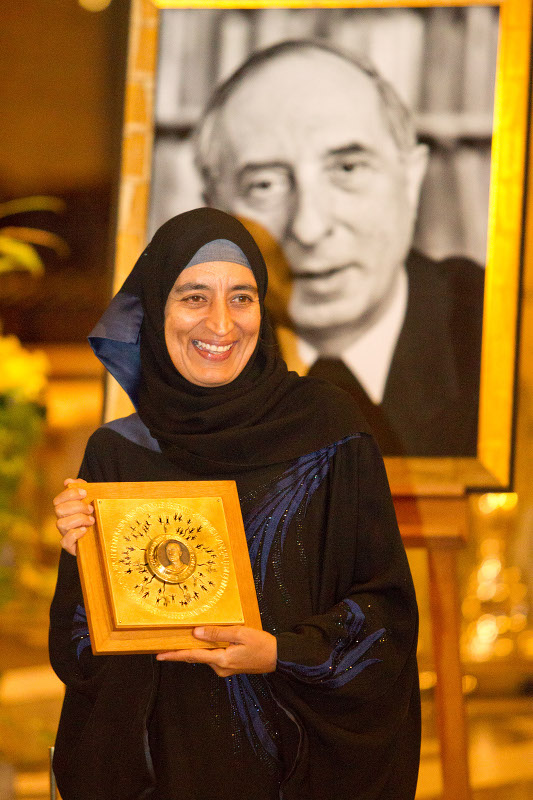
Foto: Martin Felder

Foto: Ulrike Comes

 «I had been unjustly accused before the entire parish council. My answer was: silence, tears. After three days there was a phone call from that person, broken with emotion: “Will you forgive me?” and the answer, “I have already forgiven!!! Then a thought came to mind: it was not enough to forgive, but I could do more. So I invited that person to dinner, and a friendship was born, which will never be broken.» This is the story of Berenice, mother of three children, and a catechist for over 20 years, and then a minister of the Word in the five communities that make up the parish of Immaculata Conceção, in one of the peripheral districts of the immense city of Sao Paolo. These were flash backs of the many experiences recounted during the two “Schools of Communion” of the Parish Movement – branch of the Focolare Movement in the local Church – held from 22 to 24 January in the Ginetta Mariapolis, in Vargem Grande Paulista (SP) and from 30 to 31 January in the Mariapolis (Igarassu-Recife). The encounters focused on: Unity, the specific charism of the Focolare, with a particular stress on Mercy in this Holy Year. These were attended by 300 people consisting of the youth, lay adults, religious, seminarians, deacons and priests of 116 parishes in 27 dioceses from 16 Brazilian states. Together they testified to the force of forgiveness and mercy of evangelical love, which make the parish a community of communities, when this force and mercy are lived among the members of the movements.”
«I had been unjustly accused before the entire parish council. My answer was: silence, tears. After three days there was a phone call from that person, broken with emotion: “Will you forgive me?” and the answer, “I have already forgiven!!! Then a thought came to mind: it was not enough to forgive, but I could do more. So I invited that person to dinner, and a friendship was born, which will never be broken.» This is the story of Berenice, mother of three children, and a catechist for over 20 years, and then a minister of the Word in the five communities that make up the parish of Immaculata Conceção, in one of the peripheral districts of the immense city of Sao Paolo. These were flash backs of the many experiences recounted during the two “Schools of Communion” of the Parish Movement – branch of the Focolare Movement in the local Church – held from 22 to 24 January in the Ginetta Mariapolis, in Vargem Grande Paulista (SP) and from 30 to 31 January in the Mariapolis (Igarassu-Recife). The encounters focused on: Unity, the specific charism of the Focolare, with a particular stress on Mercy in this Holy Year. These were attended by 300 people consisting of the youth, lay adults, religious, seminarians, deacons and priests of 116 parishes in 27 dioceses from 16 Brazilian states. Together they testified to the force of forgiveness and mercy of evangelical love, which make the parish a community of communities, when this force and mercy are lived among the members of the movements.”  There were numberless fruits of the Word of God put into practice: in the districts of the outskirts where the laity took charge of finding the facilities to host the growing numbers of the faithful and the youth, who dedicated themselves to the various pastoral activities in the prisons or parish social works where the priority is to listen and pay attention to the person rather than to organization and material aid. Some undertook to initiate small encounters in the parishioners’ homes, bringing the Word of Life to the lives of families that are oftentimes far from the Church as in the case of Maria Hélia from a community of Marechal Deodoro. Bernadete lives in João Pessoa and is a catechist in the parish of Baby Jesus and a member of the archdiocesan team of catechists. She tries to share what she lives with a great openness to dialogue, starting from her family and relatives who belong to the evangelical church and Pentecostal associations. On Christmas Day she managed to involve everyone – including her husband who is not a Church goer – in a sketch of the birth of Jesus. “A spirit of dialogue and unity was established among all of us. We had a real Christmas!” During the conclusive meeting, the commitment declared by all was to become builders of unity within the communities, creating relationships in which, through mutual love, the Risen Christ is present and attracts and transforms everything, irradiating peace and joy. The objective was this: to have an open heart and fulfill “Jesus’ dream” when he prayed to the Father ”that all may be one.”
There were numberless fruits of the Word of God put into practice: in the districts of the outskirts where the laity took charge of finding the facilities to host the growing numbers of the faithful and the youth, who dedicated themselves to the various pastoral activities in the prisons or parish social works where the priority is to listen and pay attention to the person rather than to organization and material aid. Some undertook to initiate small encounters in the parishioners’ homes, bringing the Word of Life to the lives of families that are oftentimes far from the Church as in the case of Maria Hélia from a community of Marechal Deodoro. Bernadete lives in João Pessoa and is a catechist in the parish of Baby Jesus and a member of the archdiocesan team of catechists. She tries to share what she lives with a great openness to dialogue, starting from her family and relatives who belong to the evangelical church and Pentecostal associations. On Christmas Day she managed to involve everyone – including her husband who is not a Church goer – in a sketch of the birth of Jesus. “A spirit of dialogue and unity was established among all of us. We had a real Christmas!” During the conclusive meeting, the commitment declared by all was to become builders of unity within the communities, creating relationships in which, through mutual love, the Risen Christ is present and attracts and transforms everything, irradiating peace and joy. The objective was this: to have an open heart and fulfill “Jesus’ dream” when he prayed to the Father ”that all may be one.”

 (…)“Let among you who is without sin be the first to throw a stone at her” (Jn 8:7). Jesus said this to those who wanted to stone the adulteress. The central idea in Jesus’ commands is always love. This is why he doesn’t want us Christians to condemn anyone. In fact he says, “Do not judge,” and proclaims, “Blessed are the merciful.” Jesus wants mercy. Nevertheless, from what he says one could conclude that there is someone who could throw the first stone: whoever is without sin. This is certainly not one of us, we are all sinners. But there is a person who is without sin. And we know who she is: the Mother of God. Could Mary, then, “throw a stone” at someone who erred? Did she ever do such a thing when she was on earth? We know our Mother. We know what Scripture says about her, what Tradition has handed down to us about her, what the People of God have always thought about her. Mary loves everyone. She is merciful She is the advocate of the most unfortunate. It is to her that countless Christians have turned, when they have had the impression that God’s justice was upon them. Mary does not throw stones. Quite the contrary, no one except Jesus spreads love the way she does. Why? Because she is a mother, and mothers only know how to love. It is typical of a mother to love her children as herself, because there’s something of herself in them. … We too can find something of ourselves in others. For we must see Jesus in ourselves and in every neighbour. What shall we do? With each neighbor, at home, at work, or on the street, with the people we talk; with those we speak to over the phone, or for whom we carry out our daily work – with every person we meet these days, we must think: “I must act as if I were his or her mother,” and act accordingly. Mothers are always serving, Mothers always find excuses for their children. Mothers are always full of hope. “As if I were his or her mother”, this is thought which must be foremost in our minds these days. This must be our resolution, if we want to be sure not to throw stones: and to be Mary’s presence here on earth for everyone we meet. Chiara Lubich Rocca di Papa, 3rd March 1983 Source: Chiara Lubich Centre
(…)“Let among you who is without sin be the first to throw a stone at her” (Jn 8:7). Jesus said this to those who wanted to stone the adulteress. The central idea in Jesus’ commands is always love. This is why he doesn’t want us Christians to condemn anyone. In fact he says, “Do not judge,” and proclaims, “Blessed are the merciful.” Jesus wants mercy. Nevertheless, from what he says one could conclude that there is someone who could throw the first stone: whoever is without sin. This is certainly not one of us, we are all sinners. But there is a person who is without sin. And we know who she is: the Mother of God. Could Mary, then, “throw a stone” at someone who erred? Did she ever do such a thing when she was on earth? We know our Mother. We know what Scripture says about her, what Tradition has handed down to us about her, what the People of God have always thought about her. Mary loves everyone. She is merciful She is the advocate of the most unfortunate. It is to her that countless Christians have turned, when they have had the impression that God’s justice was upon them. Mary does not throw stones. Quite the contrary, no one except Jesus spreads love the way she does. Why? Because she is a mother, and mothers only know how to love. It is typical of a mother to love her children as herself, because there’s something of herself in them. … We too can find something of ourselves in others. For we must see Jesus in ourselves and in every neighbour. What shall we do? With each neighbor, at home, at work, or on the street, with the people we talk; with those we speak to over the phone, or for whom we carry out our daily work – with every person we meet these days, we must think: “I must act as if I were his or her mother,” and act accordingly. Mothers are always serving, Mothers always find excuses for their children. Mothers are always full of hope. “As if I were his or her mother”, this is thought which must be foremost in our minds these days. This must be our resolution, if we want to be sure not to throw stones: and to be Mary’s presence here on earth for everyone we meet. Chiara Lubich Rocca di Papa, 3rd March 1983 Source: Chiara Lubich Centre 
 Card. Giuseppe Betori, Archbishop of Florence traced an important phase of his story, and described him as «A promoter of proactive communion between the various groups and associations,» who «interpreted the hope of Cardinal Benelli and Chiara Lubich» for the creation of the
Card. Giuseppe Betori, Archbishop of Florence traced an important phase of his story, and described him as «A promoter of proactive communion between the various groups and associations,» who «interpreted the hope of Cardinal Benelli and Chiara Lubich» for the creation of the













